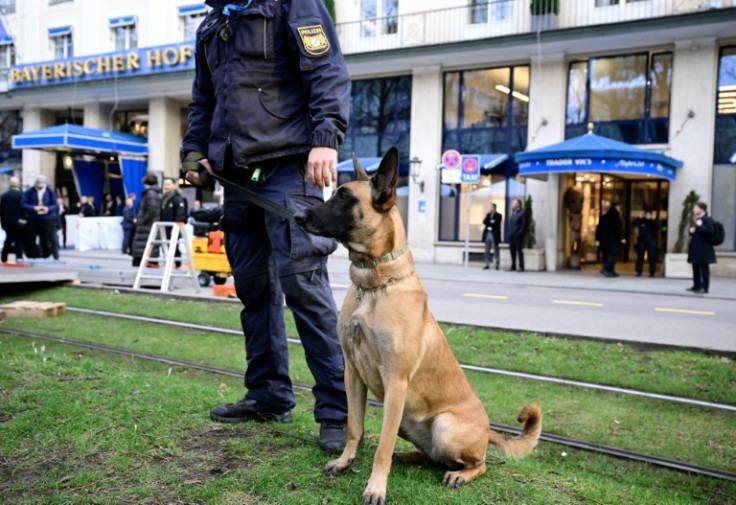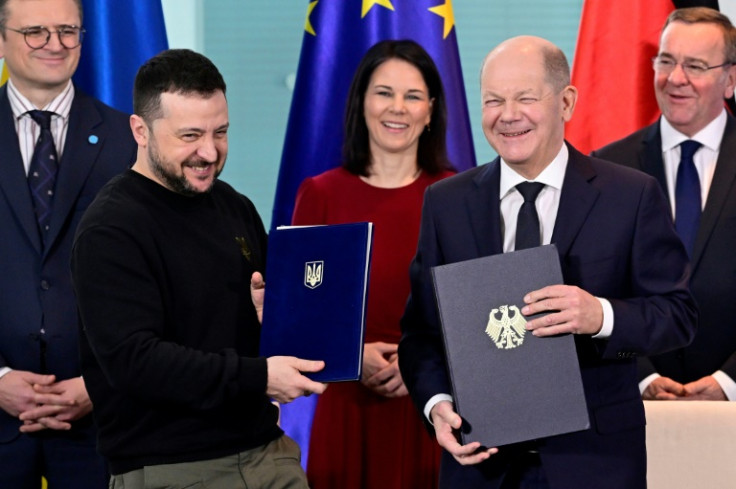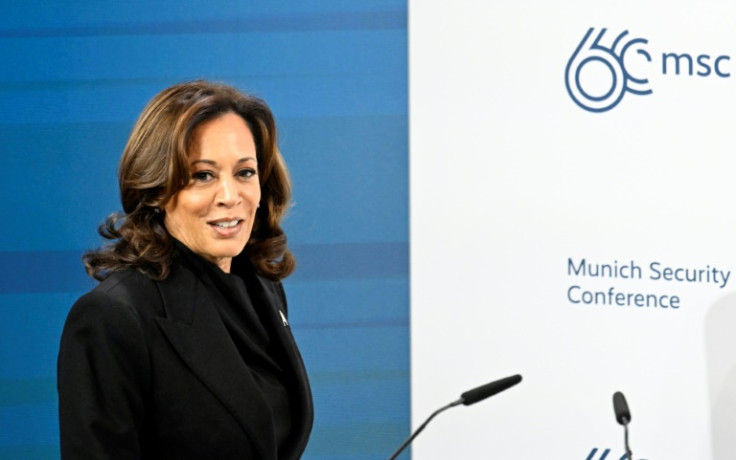Ammunition Shortage Hurting Ukraine, Zelensky Tells Munich Meeting

Ukraine's fightback against Russian troops is being limited by a lack of long-range missiles and artillery shells, President Volodymyr Zelensky said on Saturday, making a fresh appeal for more weapons.
Later in the day, delegates at the conference also discussed the situation in Gaza, with some holding out slim hopes of a lasting solution to end the fighting.
Zelensky's call at the gathering of 180 leaders and defence chiefs at the Munich Security Conference comes at a critical juncture, with Ukraine's troops forced to withdraw from the frontline city of Avdiivka to avoid being encircled.
"Ukrainians have proven that we can force Russia to retreat," he said, adding that "our actions are limited only by the sufficiency and length of the range of our strength... (the) Avdiivka situation proves this," said Zelensky.
"Keeping Ukraine in artificial deficits of weapons, particularly in deficits of artillery and long-range capabilities, allows Putin to adapt to the current intensity of the war."
With the war about to enter its third year, Ukraine is under mounting pressure over the ammunition shortfall.
The long-term future of billions of dollars of Western aid is also in doubt, with a possible $60-billion package of military aid held up in Washington since last year because of wrangling in Congress.
Seeking to allay fears over US stamina in helping Ukraine, Vice President Kamala Harris said after talks with Zelensky that her country would not allow political brinksmanship to stand in the way of support to Kyiv.
"As it relates to our support for Ukraine, we must be unwavering and we cannot play political games," she said.
On top of the war in Ukraine, the war between Israel and Hamas has added to the concerns for world leaders and diplomats gathered in Munich.
Speaking at the conference, Qatar's Prime Minister Mohammed bin Abdulrahman Al-Thani provided a gloomy assessment of talks to seek a ceasefire in the more than four-month-old Gaza conflict.
"The pattern in the last few days is not really very promising," said Al-Thani, whose country has played a key role on mediating truce talks.
"Time is not in our favour", he warned, with the Muslim holy month of Ramadan set to begin on March 10.
Failure to reach a deal could lead to a wider escalation in the region, he warned, as hundreds of thousands of Gazans faced a dire humanitarian situation in the Palestinian territory.
Some 1.4 million Gazans are squeezed into the southern city of Rafah, close to the border with Egypt, as Israel prepares a new incursion in the area.
The Gaza war began with Hamas's October 7 attack which resulted in the deaths of about 1,160 people in Israel, mostly civilians, according to an AFP tally of Israeli official figures.
Militants also took about 250 people hostage, 130 of whom are still in Gaza, including 30 who are presumed dead, according to Israeli figures.
Israel's retaliatory assault on Gaza has killed at least 28,858 people, mostly women and children, according to the territory's health ministry.
The foreign ministers of Egypt and Saudi Arabia also underlined in Munich the catastrophic situation facing civilians in Gaza.
Diplomats seeking an end to the conflict said however that there may be a unique chance to end the cycle of violence in the next months.
Earlier in the day, US Secretary of State Antony Blinken said Israel had an "extraordinary opportunity" to normalise relations with almost every Arab nation, if the Gaza conflict came to an end.
Blinken, who has travelled several times to the Middle East since the war erupted, had been in talks with key figures in the region to seek a truce deal and "an enduring end" to the Israel-Hamas war.
There was however an "imperative to proceed to a Palestinian state -- one that also ensures the security of Israel", Blinken said in Munich.
Israeli President Isaac Herzog, who held talks with Blinken, urged Saudi Arabia to normalise ties with his country, saying that would be a win against Hamas.
Stopping efforts at normalisation that had been progressing before the war was among Hamas's aims when it launched its October 7 attack.
"That is why moving on with Saudi Arabia will clearly be a victory over what Hamas did," he said.


© Copyright AFP 2025. All rights reserved.





















